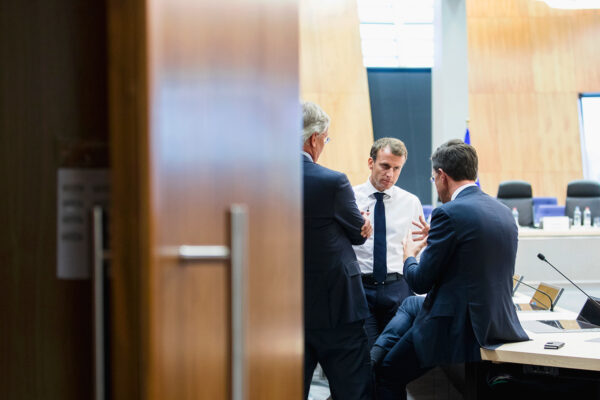
The Financial Times reports that Emmanuel Macron and Angela Merkel have made a “breakthrough” on eurozone reform: the French and German leaders agree the currency union should get its own budget.
The move is good news for the French president, who has long believed that giving the single currency area its own resources will make it more resilient to economic crises.
But it is unlikely to come into being any time soon.
Step down
The latest plan appears to be a step down from what Macron and Merkel agreed in Meseberg in June. Rather than a eurozone-run budget, it would now be part of the EU’s. The Financial Times describes this as a “significant concession” to Germany.
It could set the budget’s creation back by several years as all 27 EU member states — not just the nineteen that use the euro — will need to sign off.
There is no word yet on how big the budget would be. Macron has in the past argued it should represent several percentage points of the eurozone’s economic output.
It would be funded from contributions by eurozone countries, for example from a new financial transaction tax.
Its purpose would be to promote “convergence and competitiveness”, reflecting French and German priorities.
The money could be used to finance innovation, investment and “human capital” — but not for “stabilization” purposes, meaning bailing out countries in crisis. That remains the purview of the European Stability Mechanism, which France and Germany wants to turn into a European Monetary Fund.
Opposition
The Financial Times expects that the Macron-Merkel compromise will meet resistance from hawkish creditor states like Finland and the Netherlands. They are afraid it will turn the eurozone into a “transfer union” in which prosperous nations, like them, would permanently subsidize the poor.
Politico reports that the Italian budget crisis could also play spoiler. It is expected to overshadow a meeting of eurozone finance ministers on Monday.
“Italy has made this much more difficult,” one diplomat told Politico. “We want all skeletons out of the closet before we continue [with eurozone reform].”
Italy’s populist government, which came to power in June, has reneged on the fiscal commitments of its predecessor in order to cut taxes and spend more on pensions and welfare. To fiscal hawks in the north, it only confirms the unreliability of high-debt countries in the south.
